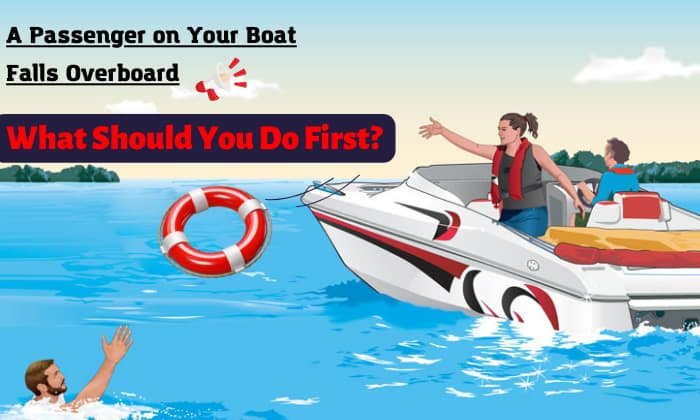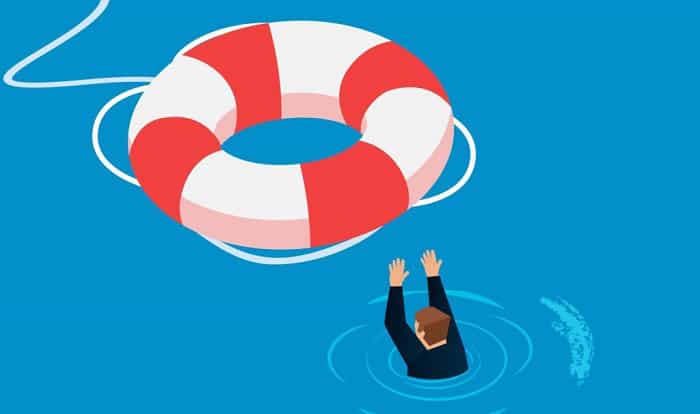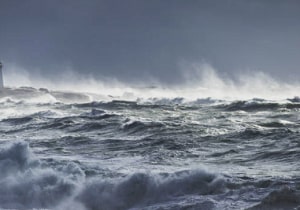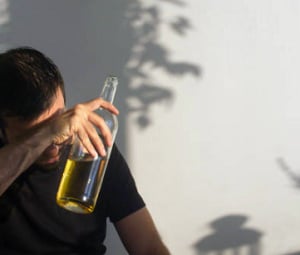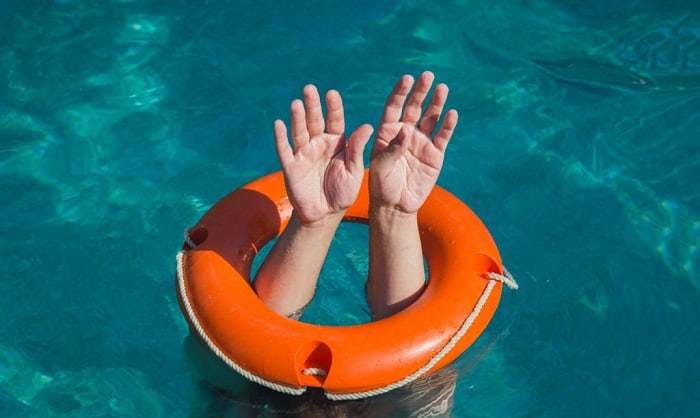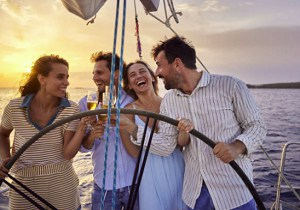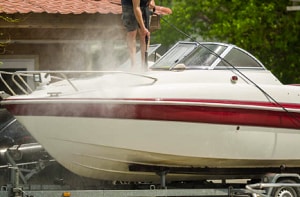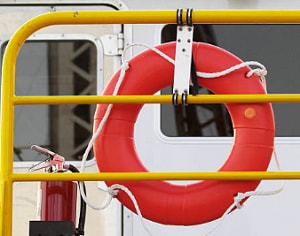Taking charge of a vessel is a dream for many boaters, but a passenger on your boat falls overboard what should you do first?
One of the first things you need to do is to alert everyone else of the situation, usually by yelling, “Man overboard!”. However, there are a few other points to remember. Let’s take a look at these actions we need to take first to rescue a person from the water.
Table of Contents
What to Do First if Someone Falls Overboard
In case someone falls overboard, the first thing you need to do is to inform everyone of what has happened; the standard procedure is to yell out, “Man overboard!”.
However, there is more to this than letting everyone know what happened. Below are the actions that need to be immediately undertaken as well as the proper method of retrieval.
1. Stop the vessel
When a person falls overboard, it may be difficult to pinpoint his exact location. Stopping the vessel is what can protect him from propeller strikes, which can be fatal, so it needs to be done as soon as possible.
For safety’s sake, have a swimmer wearing a life jacket on standby in case the victim is injured. Likewise, children may need assistance from adults, so a rescuer will be necessary.
In other situations, however, do not jump into the water after the victim. You don’t want to accidentally get injured, especially when the propeller has yet to stop properly.
2. Throw them PFDs
Toss PFDs in the direction of the victim; these not only help the person in the water stay afloat but can also serve as additional markers to help track them. Receiving this initial help can also keep the victim calm.
If the person is already wearing PFDs in the first place, which is recommended in case of accidents, throw additional floating pillows or MOB gears in their direction.
3. Keep eyes on the person who fell
Once you know the victim’s location, it may not be possible to bring them back onto the boat immediately. If the vessel needs to be maneuvered to help them back on, someone onboard needs to keep their eyes on the person while retrieval is underway.
Some GPS have a man overboard (MOB) button, which can help you identify the place where a person fell. This is more accurate the faster you can press the button.
What Can Cause Someone to Fall Overboard
1. Turbulent Waters
Unstable waters can easily cause someone, especially those not used to traveling by boat, to lose their balance. If they’re standing near the edge, they’ll likely fall over into the water.
2. High boating speed
If the vessel is traveling at high speed, it is easy to lose your footing. If slowing down is not an option, keeping seated and avoiding unnecessary risks is a good idea.
3. Balance Difficulties On Board
Losing your balance while on board may result in falling overboard; this is why it is dangerous to consume alcohol. However, some people may have difficulties maintaining the necessary balance on a boat. Such people include children and the elderly.
Be sure to pay proper attention to such passengers and lend assistance when necessary.
4. Intoxication
Drinking alcohol is one of the most common factors in boating accidents, and there are a lot of reasons for it. The fact that inebriation can lead to impaired judgment and loss of balance is bad for anyone, whether they’re operating the boat or the passenger.
Falling while navigating a boat becomes more probable the more alcohol a person has consumed. And when an operator falls overboard, it can spell trouble for everyone.
5. Improperly attended boat
Items on the boat that have been neglected may obstruct people and even cause an accident. Keeping things neat and organized will reduce the number of hazards on board.
6. Slippery boat deck
A wet and slimy boat deck can easily make a person lose their balance, no matter how experienced or strong. As a result, one can easily tumble down into the water body.
How to Prevent People From Falling Overboard
- Control Alcohol intake
Since alcohol is a common cause of boating accidents, the best way to avoid such things is by not drinking at all. But if it’s unavoidable, moderation can go a long way.
- Keep weight on the boat balanced
If the boat’s weight distribution is bad, it could cause problems such as capsizing. Even worse is that it could happen while the vessel is in transit. However, keeping the weight well-distributed will help prevent such a problem.
Both cargo and passengers need to be kept centered on the boat.
- Drive at a moderate speed
Regardless of how skilled you are at operating your boat, it’s better to be safe than sorry. Make sure the traveling speed is slow enough that everyone can walk around comfortably whenever they need to.
- Clean boat deck regularly
Considering how a slippery boat deck can result in disastrous accidents, it’ll be wise to keep the surface clean and dry at all times.
- Stay still on board
Walking around on the boat while it is in operation creates more risk of falling overboard. By sitting still, we can avoid such issues.
- Wear a PFD
While this won’t prevent you from falling overboard, it can save your life in the event you do fall off or even if the vessel capsizes. After all, many boating fatalities involve people who were not wearing PFDs at the time of the accident.
Put the PFD on your pre-departure checklist and keep it worn while on the boat, along with everything needed for a safe trip.
Where is the Best Place on a Boat to Bring a Person Who Has Fallen Overboard
Normally, pulling to the side is your best bet while positioning the boat so that the current or wind can help bring the person toward you. This also leaves the person in the water away from the propeller.
However, if a passenger on a small boat falls overboard, the vessel may become unbalanced when that person is pulled back onto the boat. In this case, the stern would be the better place to bring them back on board.
If your vessel has a ladder or a swim platform, these can also serve as an excellent place to bring someone back on board.
What to Do if You Fall Overboard
If your boat capsizes or you fall into the water, it is important to know what you can do to increase your chances of survival. The first thing to remember is that you must stay calm; otherwise, you may compromise your safety.
If you’re wearing a PFD, you already have a much higher chance of survival. Here are some things you need to do:
- Control the exhale reflex by covering your lips to prevent breathing in water. It’ll help to cover your entire face with your hands.
- Keep yourself noticeable by making sounds and waving your arms. While those onboard may spot you already, it still helps to call out.
- Raise your knees into a fetal position while wearing a PFD to keep your body temperature up
- Remove heavy articles of clothing such as boots.
- Create a makeshift PFD from clothing or items in the area if you’re not wearing a life jacket.
- Stay in one area and wait for help. Conserving energy should be your top priority. Moving around to keep warm will deplete your body’s strength quickly.
Conclusion
A passenger on your boat falls overboard what should you do first, and what should the skipper take into consideration to keep those on the vessel safe? Now you have a better understanding of what to do in such a situation.
Do you think you will be able to deal with falling overboard now? It’s not a pleasant thought to consider, but it’s essential to prepare ourselves for the possibility. Tell us your thoughts in the comments section below.
Remember to boat safely.

“My intention from the first day establishing Boating Basics Online is to provide as much help as possible for boaters who want to experience a first safe and convenient trip. So feel free to join us and share your beautiful journeys to the sea!”

